Kuznetsov, Kuznyetsov, Kuznetsoff, or Kouznetsov or Kuznetsova is the third most common Russian surname, an equivalent of the English "Smith".
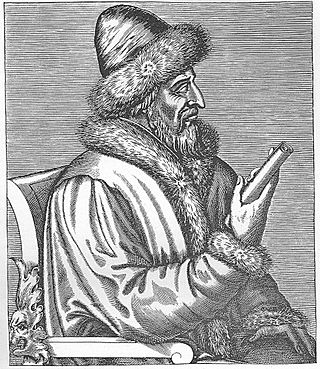
Vasili III Ivanovich was Grand Prince of Moscow and all Russia from 1505 until his death in 1533. He was the son of Ivan III and Sophia Paleologue and was christened with the name Gavriil (Гавриил). Following on the ambitions of his predecessor Ivan, Vasili conquered Pskov, Ryazan and Smolensk as well as strengthening Russian influence in Kazan and to the Volga region. Several nobles were either exiled, sentenced or executed for criticizing his policies.
![<i>Moscow Does Not Believe in Tears</i> 1980 [[Soviet Union]] film](https://upload.wikimedia.org/wikipedia/en/a/a3/Moscow_for_US.jpg)
Moscow Does Not Believe in Tears is a 1980 Soviet romantic drama film made by Mosfilm. It was written by Valentin Chernykh and directed by Vladimir Menshov. The leading roles were played by Vera Alentova and Aleksey Batalov. The film won the Academy Award for Best Foreign Language Film in 1981.
Enemies is a 1906 Russian-language play by Maxim Gorky. It was published in 1906 in the collection Znaniye, in Saint Petersburg, at a time when Gorky was actively involved with the Russian revolutionary underground, which served as the impetus for the play. It is a recognized as an early work of socialist realism.

Outskirts, also known in English as The Patriots or by the transliterated Russian title Okraina, is a 1933 Soviet film directed by Boris Barnet.
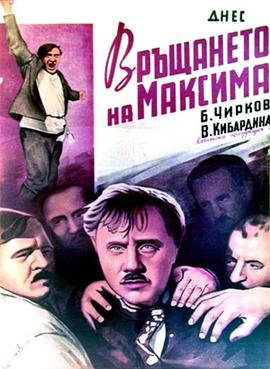
The Return of Maxim is a 1937 Soviet drama film directed by Grigori Kozintsev and Leonid Trauberg, the second part of trilogy about the life of a young factory worker, Maxim.

The Vyborg Side is a 1939 Soviet drama film directed by Grigori Kozintsev and Leonid Trauberg, the final part of trilogy about the life of a young factory worker, Maxim. The film was also released in the United States under the title New Horizons.

Golden Mountains is a 1931 Soviet silent drama film directed by Sergei Yutkevich. A re-edited sound version of the film was released in 1936.
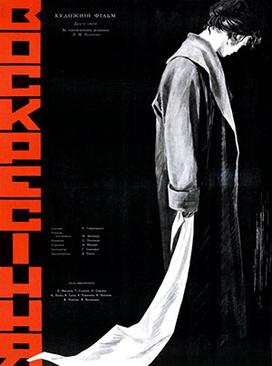
Resurrection is a Soviet film made in 1960-1961, directed by Mikhail Schweitzer and based on his and Yevgeny Gabrilovich's adaptation of the Russian writer Leo Tolstoy's 1899 novel of the same name.
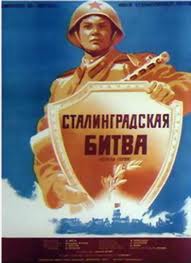
The Battle of Stalingrad is a 1949 two-part Soviet war film about the Battle of Stalingrad, directed by Vladimir Petrov. The script was written by Nikolai Virta.

Ivan Pavlov is a 1949 Soviet biopic directed by Grigori Roshal and starring Aleksandr Borisov, Nina Alisova and Nikolai Plotnikov. The film portrays the life of the Russian scientist Ivan Pavlov (1849–1936), known for his Pavlov's dog experiments. The film was made during the Stalinist era, despite the fact that Pavlov had been a noted opponent of the Soviet regime.

Zonal Art Exhibition "Leningrad" became one of the most significant, successful and productive events in the history of Soviet art exhibitions of the 1960s through the 1980s. The exhibition took place in State Russian Museum.

Exhibition of Leningrad artists of 1960 become one of the largest Soviet Art Exhibition of 1960 year. The Exhibition took place in State Russian Museum.

"Our Contemporary" Exhibition of Leningrad artists of 1971 became one of the notable event in Art live of Leningrad of the beginning of 1970s. The Exhibition took place in the State Russian Museum. Exhibition opened a series of Leningrad, Zonal and National art exhibitions of the 1970s, dedicated to image of our contemporary.
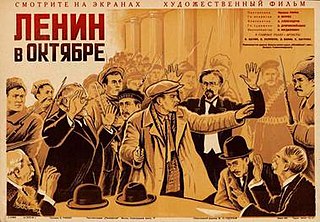
Lenin in October is a 1937 Soviet biographical drama film directed by Mikhail Romm and Dmitri Vasilyev and starring Boris Shchukin, Nikolay Okhlopkov and Vasili Vanin. Made as a Soviet-realist propaganda work by the GOSKINO at the Mosfilm studio, it portrays the activities of Lenin at the time of the October Revolution. All Stalin scenes were expunged from the film for its reissue in 1958.

People's Artist of the RSFSR was an honorary title granted to Soviet Union artists, including theatre and film directors, actors, choreographers, music performers, and orchestra conductors, who had outstanding achievements in the arts, and who lived in the Russian Soviet Federative Socialist Republic (RSFSR). This title was one rank below Honored Artist of the RSFSR and one above People's Artist of the USSR.
Lyubov Yarovaya is a 1953 Soviet drama film directed by Yan Frid as film adaptation of the original stage production at Leningrad Bolshoi Drama Theater premiered in 1951. Both the stage production and its film adaptation were based on a 1926 play of the same name by Konstantin Trenyov, which was later adapted a second time as a 1970 film made at Lenfilm studios and starring a new generation of actors. The 1953 film was the most popular film released in the Soviet Union that year, with attendance of more than 46 million.

Events from the year 1883 in Russia.
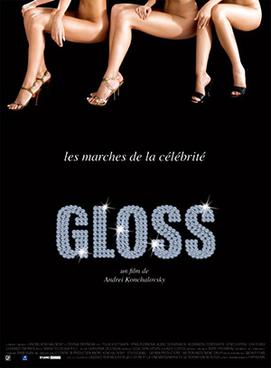
Gloss is a 2007 Russian satirical melodrama directed by Andrei Konchalovsky. The picture opened the 2007 Kinotavr film festival, and was part of the competition program.

Mark Isaakovich Prudkin was a Soviet and Russian stage and film actor. People's Artist of the USSR (1961). Hero of Socialist Labour (1989). Laureate of three Stalin Prizes.

![<i>Moscow Does Not Believe in Tears</i> 1980 [[Soviet Union]] film](https://upload.wikimedia.org/wikipedia/en/a/a3/Moscow_for_US.jpg)














